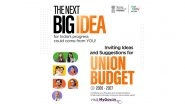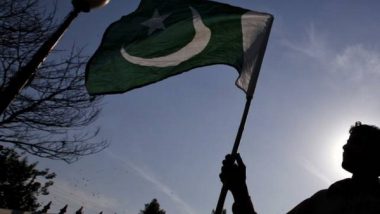Islamabad, December 28: Pakistan spent Pakistani Rupee (Rs) 2.2 trillion on interest on debt and defence in the first five months of the fiscal year, amounting o more than the total net income of the government, leading to a severe curtailment of other expenses, The Express Tribune reported.
During the July-November period of the current fiscal year, there was an alarming increase of 83 per cent in the interest cost on the Rs 50 trillion federal government debt stock. And in which, Finance Ministry paid Rs 1.7 trillion in interest cost, up by Rs763 billion, the daily reported citing sources.
Similarly, in the case of defence, the government has spent Rs 517 billion in five months. It was Rs 112 billion or nearly 28 per cent more than the previous fiscal year, according to The Express Tribune citing sources.
Despite spending the entire net earnings on only just two sections, the country is still struggling to find a solution to step out of the debt trap and the security issue in the country is only making the situation worst.
The risks of sovereign defaults are very high in the absence of an International Monetary Fund (IMF) umbrella and no major cash handouts by bilateral creditors, reported The Express Tribune.
Compared to the huge spending of Rs 2.2 trillion on debt servicing and defence, only Rs 119 billion was spent on development. This is way less than the money spent on debt and defence. The spending on development is Rs 133 billion or 53 per cent less than that in the previous fiscal year.
As a result of uncontrolled spending on debt servicing, coupled with massive slippages against the annual circular debt reduction plan, the government will miss the annual primary budget deficit target agreed upon with the IMF, as per The Express Tribune report.
Consequently, the federal budget deficit widened to over Rs1.43 trillion in the first five months of the current fiscal year, as the rise in current expenditure was more than the growth of gross revenues due to uncontrolled spending on debt servicing.
The federal budget deficit, the gap between expenses and revenues, was equal to 1.7 per cent of the GDP. In nominal terms, the deficit was low compared to last year due to the inflated size of the economy on the back of a 25 per cent inflation rate.
(The above story is verified and authored by ANI staff, ANI is South Asia's leading multimedia news agency with over 100 bureaus in India, South Asia and across the globe. ANI brings the latest news on Politics and Current Affairs in India & around the World, Sports, Health, Fitness, Entertainment, & News. The views appearing in the above post do not reflect the opinions of LatestLY)













 Quickly
Quickly


